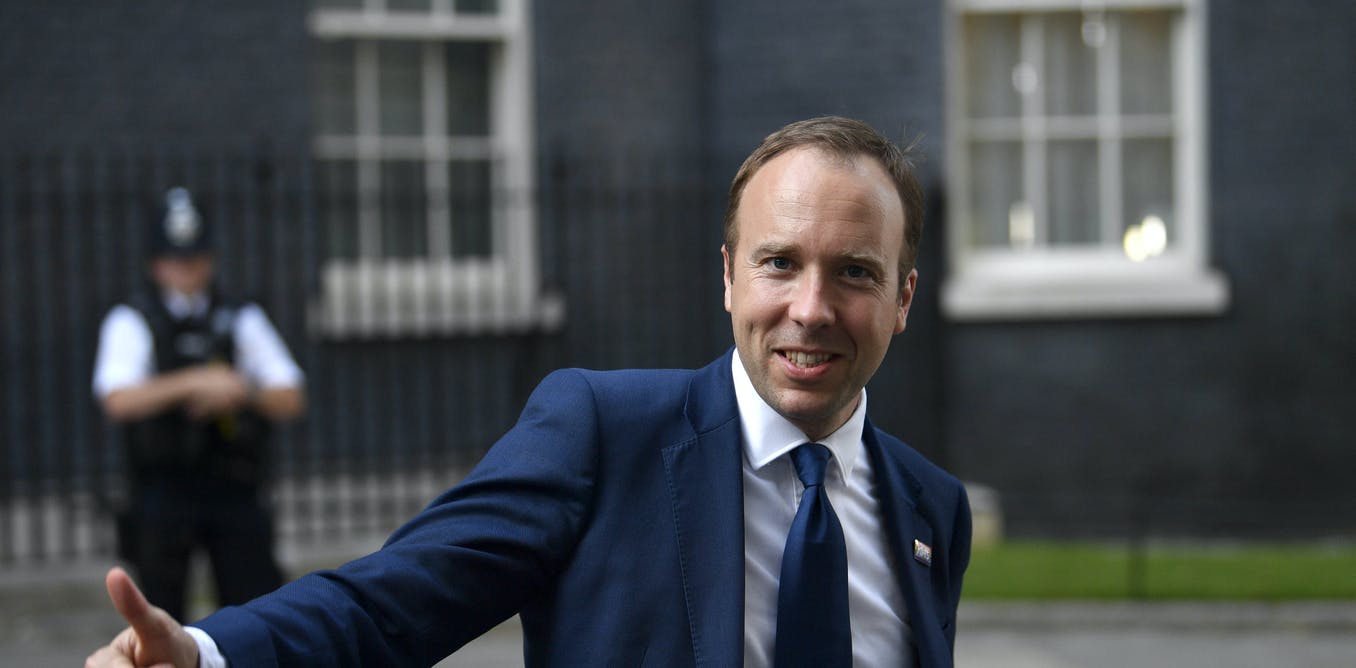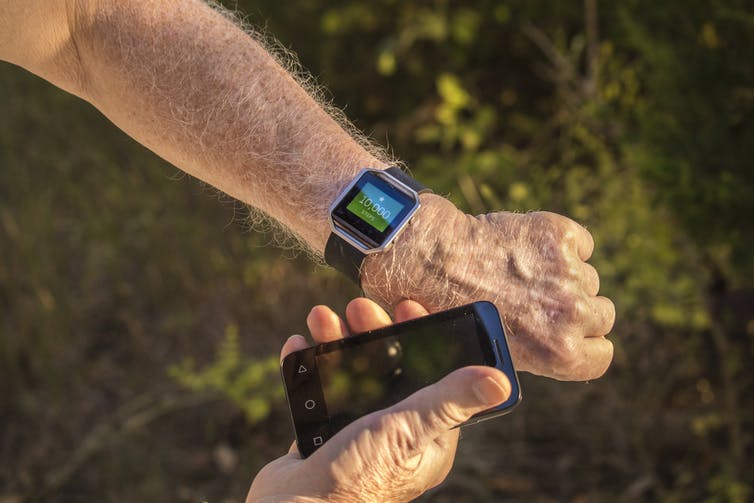To create a sustainable NHS we must urgently invest in cutting-edge technology

Health secretary Matt Hancock understands the importance of technology in healthcare. Neil Hall/EPA
While Theresa May was counting down the hours to the end of her premiership, the government unexpectedly slipped out a green paper on preventing ill health in a last-minute shelf-clearing operation.
Much of the comment it attracted has focused on proposed new curbs on the food and tobacco industries, after Boris Johnson had earlier signalled his opposition to “sin taxes” during the Tory leadership contest. In fact, the incoming prime minister supported such taxes as London mayor when I proposed them in 2014 as chair of the London Health Commission.
But a key part of the green paper has so far gone unreported. Ordered by the digitally savvy health secretary, Matt Hancock, it advocates a big increase in the role of technology in preventing ill health. This will be critical for creating a sustainable NHS.
We have known for centuries that “an ounce of prevention is worth a pound of cure”, yet blanket exhortations such as “eat less and exercise more” have had little impact on the nation’s health. Prevention and public health have remained neglected parts of the NHS, taking less than 5% of the overall budget and suffering a fall in spending of £600m since 2014-15, according to the Institute of Public Policy Research.
That must change. With the latest developments in genomics, artificial intelligence (AI) and digital innovation, we will increasingly be able to intervene earlier in the disease process with personalised plans, tailored to individuals, delivering targeted support and specific protection against future threats.
We will be able to use the huge quantities of data amassed by the NHS to predict who will be ill, with which disease, and what interventions will be most effective – with safeguards to guarantee patient confidentiality.
Intelligent investments
But this will require ministers to commit to bold new investment – an investment that is vital not only for the future of the NHS but also for the future of life sciences in the UK.
Britain has led the way in the development of genomics – understanding how our genetic inheritance affects both our risk of disease and our response to treatment – with initiatives such as the 100,000 Genomes Project. The latest advances are making a real difference, with up to half of cancer patients identifiable as suitable for a different treatment pathway and one in four patients with rare diseases who were previously without a diagnosis now receiving one.
Developments in AI and machine learning also promise big gains in areas such as health screening. For example, a collaboration between Moorfields Eye Hospital in London and tech company DeepMind has led to the creation of an AI system that is able to diagnose more than 50 different eye diseases with 94% accuracy, matching the best human experts and increasing the potential scope of screening programmes.
Digital versions of the diabetes prevention programme, providing personal health coaching and dietary recommendations, are already reaching more people through wearable technologies, apps and websites, helping to prevent the 3m people at high risk of diabetes joining the 10m already dependent on drugs and associated NHS treatment. Digital technologies are being used to support other patients, helping them access the resources they need to manage their own conditions.
These are advances, in some cases already being realised, that must be extended and spread across the NHS. But to attract the necessary investment we need to reframe the healthcare challenge.
The NHS continues to treat people when they fall ill. That is far too late. It is also unsustainable. With an ageing population and a growing burden of chronic disease, we are spending billions of pounds on avoidable illness.

An ounce of prevention.
LanaG/Shutterstock
Don’t wait till the enemy is at the door
Disease poses a threat to our health security in the same way that an invading army is a threat to our national security, as the US biotech entrepreneur Noubar Afeynan has suggested.
We do not wait for enemy forces to gather on our shores before responding with military intervention. We rely on our intelligence and diplomatic services to alert us when threats exist and keep them neutralised.
Similarly, drug treatment and surgery should be seen as the last line of defence, not the first. Our immune system protects against ill health and, as it deteriorates over time, we encounter a series of health challenges to our security – cardiovascular, neurological, oncological, infectious.
Prevention and detection then become key to preserving our health security, shifting the focus of activity from last-line treatment to continuous monitoring and intervention, providing ongoing care.
Reframing the health challenge in this way could provide the necessary impetus for change. We must seize this opportunity to transform medicine, by harnessing the power of technology to deliver intelligent prevention, enabling us to spot disease earlier, intervene sooner and save lives.
This shift is essential to help protect us from future disease threats. But it will also be vital to help sustain the NHS to continue providing care for future generations.

Lord Darzi holds the Paul Hamlyn Chair of Surgery at Imperial College London and the director of the institute of Global Health Innovation. Lord Darzi Is the principal investigator of larger number of grant from the Wellocme Trust, EPSRC, Cancer research UK as few examples. He is a board member of NHS Improvement. Lord Darzi also chairs the Accelerated Access Collaborative reporting to the Secretary of State for health. Lord Darzi also member of Evelo Board; a biotech company focusing on the role of Microbial on gut -body network and also chairs the scientific advisory board of Deepmind. Lord Darzi led a major review of NHS reform as the Parliamentary Under secretary of Health and published the seminal report High Quality Care for all in 2008. In 2014 he chaired the London Health Commission for then the Mayor of London Mr Boris Johnson.






